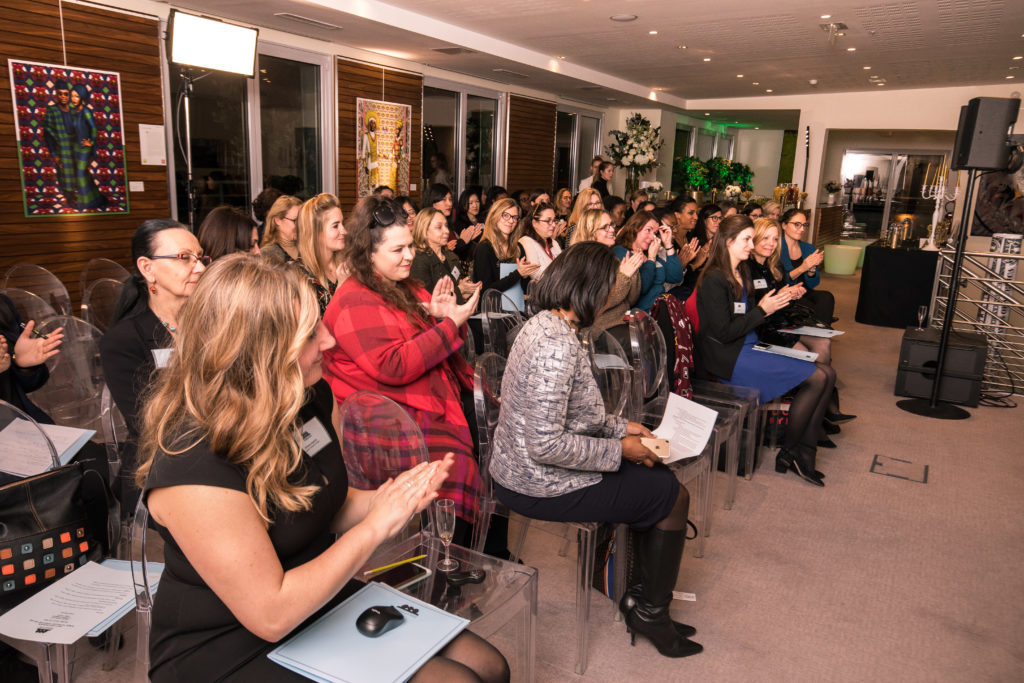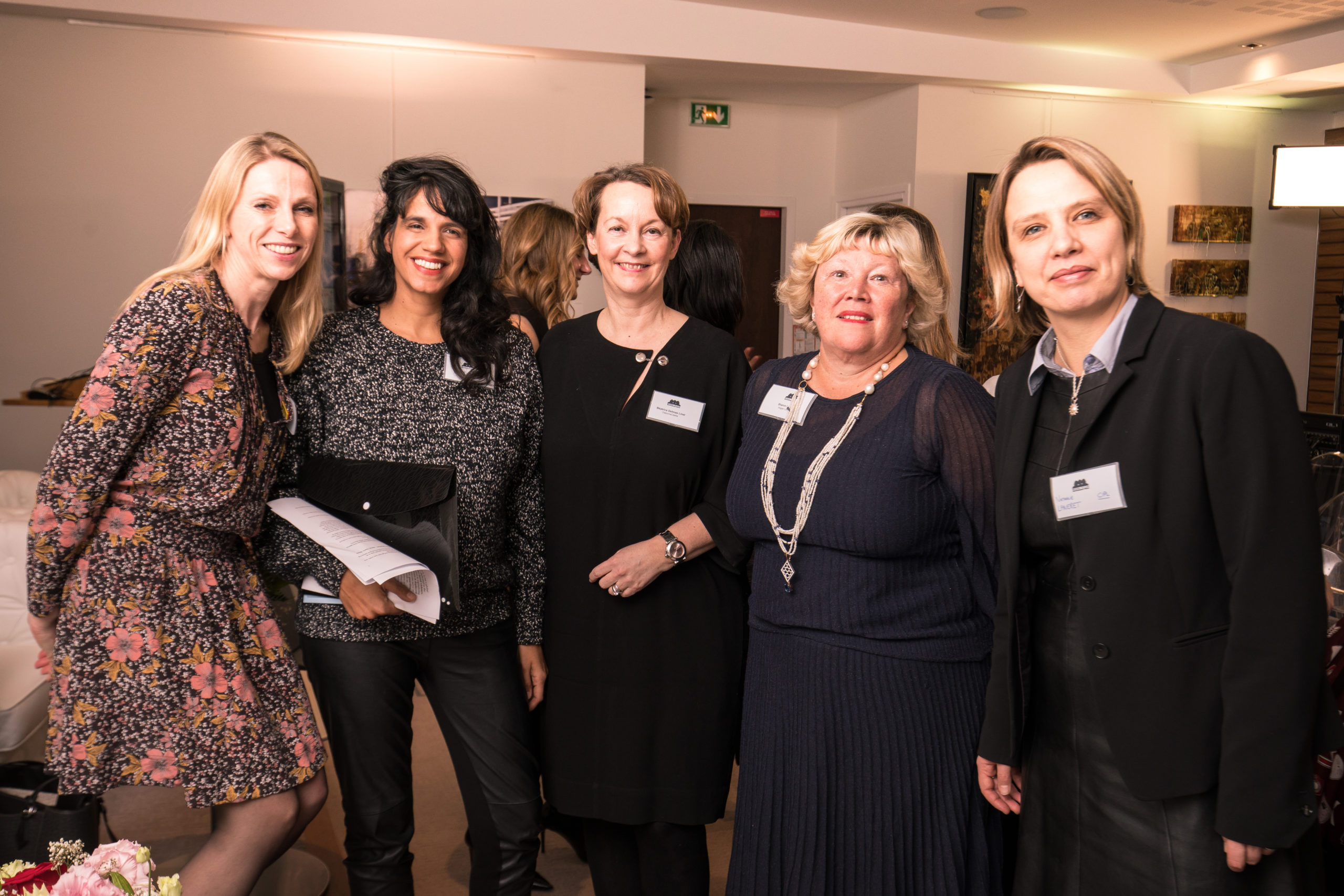Despite the French transportation strike on a cold Monday evening, we gathered for an enthusiastic deep-dive into the legal framework for liability due to Artificial Intelligence (AI) products, data privacy, and the commercial opportunities of AI— diversity by design. The WILEF Paris roundtable members represented every facet of AI expertise, from policy think tanks to global law firms to tech companies, established and new.
The evening was graciously hosted by Hogan Lovells on their lovely rooftop terrace with a view that stretched to the hill of Montmarte and Sacre Coeur.
AI is transforming our daily lives. Companies increasingly develop and use AI tools in their activities and in the provision of their products and services. AI raises legal and ethical, issues that companies should address.
Sharon Lewis – Partner, Global Head of Financial Institutions Sector, Hogan Lovells (Paris and London) LLP deftly moderated the panel, exploring how legal responsibility is recognised and AI innovation is assured. Next, the panel focused on the need for tech companies to acknowledge the inherent bias in many AI products and the opportunity, and obligation, to develop products to attract and serve a more diverse population— diversity by design.

Karen Strugnell of IBM Towers Watson explained how although many think of AI as voice technology like Siri and Alexa, in fact AI has permeated our lives for decades in many ways. Nathelie Laneret of the Centre for Information Policy Leadership exposed how data privacy questions increase with the use of AI. Beatrice Delmas of Osborne Clarke outlined the complications of imputing civil liability to AI privacy violations.
If technologies are going to live up to their marketing promises, technology companies will have to involve a diverse employee team in co-design at every stage of the process. Tech companies themselves are acknowledging potential bias in AI systems, and looking for solutions. Yaara Alon of Uber presented various examples of diversity by design. For example, using visuals clues in an app that is female or gender-neutral can lead women and other underserved populations to use the technology.
Whilst certain panelists challenged whether these kinds of offerings move the diversity needle substantially, they all recognised improvement on the horizon. We are optimistic that, by further transforming AI products to serve a wider population, underserved populations will be attracted to professional opportunities in AI technology.
Somesha Ferdinand is Co- Vice Chair of WILEF Paris.



